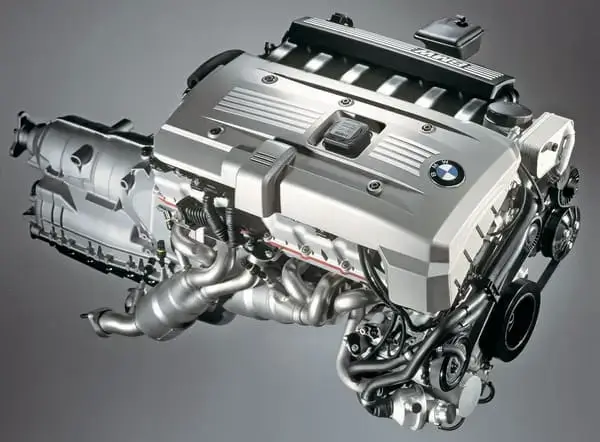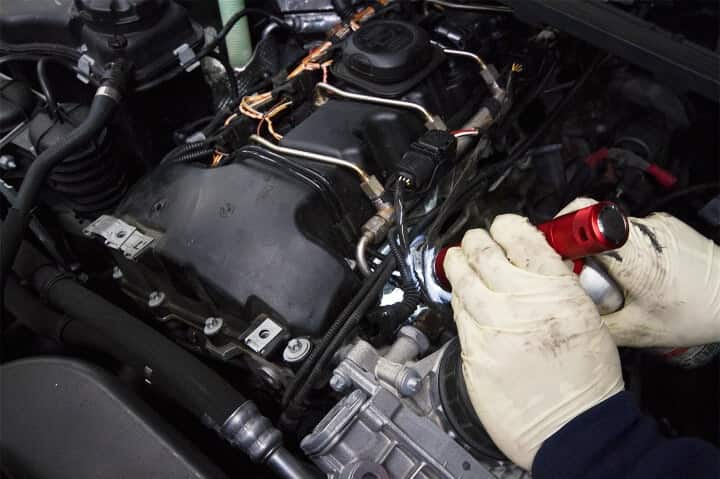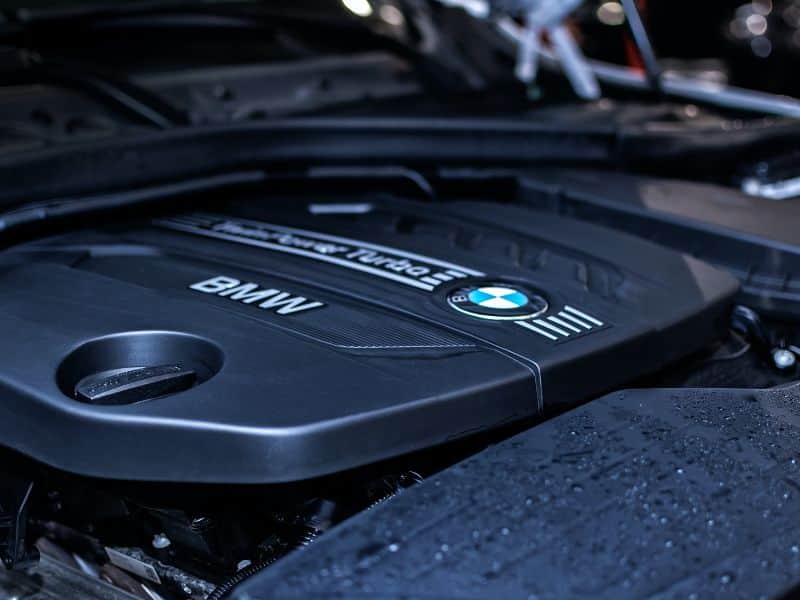The N52 is a naturally aspirated 6-cylinder engine that has succeeded the M54 engine and became one of the most successful and reliable BMW engines ever.
With its production between 2004-2015, BMW launches a near identical sibling the N51 engine. With some differences, the almost identical N51 and N52 produce the same power output.
So, in this blog let’s know more about the BMW N51 engine.
BMW N51 Engine Overview
The N51 engine is a slightly modified variant of the N52, which meets the SULEV standards. Which is mainly sold in some parts of the U.S. with SULEV regulations implemented.
So, let’s talk some things about the N52, which laid the base for the N51 engine. The N52 is a naturally aspirated 6-cylinder engine that was produced from 2004-2015 in various BMW models. It was the first engine to use the water-cooled engine to use magnesium/aluminium composite for its engine block construction.
The N52 was also listed in the Ward’s 10 Best Engines in 2006 and 2007. So, you could say the N52 has a pretty big legacy already in BMW’s engine lineup.
Then comes the N51 with an upgraded three-stage variable-length intake manifold (DISA) and much more, which we’ll discuss in the difference section.
I have many friends who now know the real value of that engine and still regret selling their N51 engine.
BMW N51 VS N52
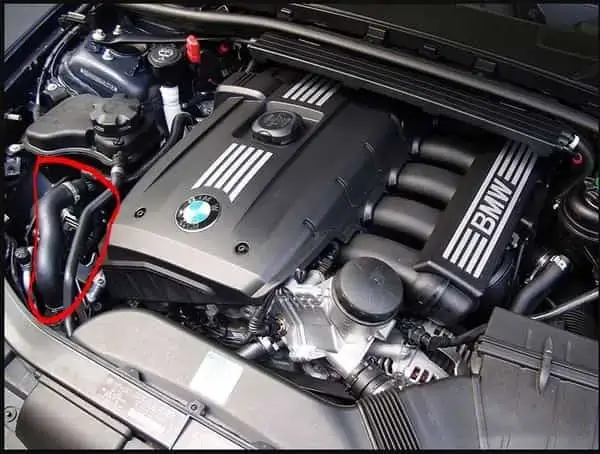
Basically both the N51 and N52 are the same engine, or you could say near identical siblings. However, there are some differences in both N51 & N52, which draws the line between them.
For example, the N51 has a three-stage variable-length intake manifold compared to the N52’s one-stage. Also, it produces a lower compression ratio of 10.0:1 instead of N52 10.7:1.
The N51 also has an advanced “Prem-air” coating radiator with an integrated EAC (Environmental Air Catalyst) sensor. Which measures the radiator functions. Also, both have a different cylinder head & combustion chamber designs.
These are some of the basic differences between the N51 & N52. You cannot visually differentiate both engines, to do so you need to look for the emissions label on the hood, where ULEV (N52) & SULEV (N51).
For a detailed difference between the N51 & N52 visit here: BMW N51 vs N52: Differences You Should Know
Most Common BMW N51 Engine Problems
As every enthusiast might know the N51 is a very reliable engine. However, as with any mechanical engine, the N51 is not prone to some problems. The N51 also suffers from the same common issues as its sibling, the N52.
VANOS Failure
Same as the N52 engine the N51 also uses the variable valve timing system also known as the double VANOS in the intake and exhaust valves. And as with the N52, the N51 is also prone to have a VANOS failure.
The VANOS system uses VANOS solenoids, which control the oil flows to the actuators to move the cam gears by opening and closing the valves.
And whenever you drive your car the VANOS system is activated. Because the system is always activated, the solenoids are prone to failure due to wear & tear. When the VANOS system fails you’ll see a noticeable drop in engine power, rough idle, poor fuel economy, etc.
To prevent this issue always change the solenoids every 70,000-75,000 miles. It’s not expensive and it could be also DIY pretty easily.
EAC Sensor
The EAC (Environmental Air Catalyst) sensor is attached to the radiator which monitors the radiator’s functioning. So, when this sensor fails this can cause the emission or smog test to fail. Also when this sensor is malfunctioned you’ll get a check engine light warning on your dashboard.
And one of the unfavorable things is when this sensor fails you’ll need to replace the whole radiator because this sensor comes attached to the radiator.
Also Check: 8 Most Common BMW N52 Engine Problems
Many of my friends have faced this similar issue, however, they got off easy because the N51 SULEV offers 15 years or 150K miles coverage of all emission-related issues. (as far as I get to know)
Hydraulic Valve Adjusters (Lifters) Ticking Issues
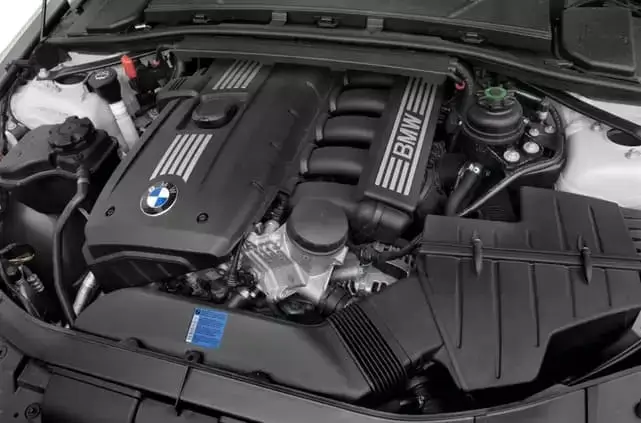
This issue in N51 is similar to the N52 engine issue. Where at higher mileage the N51 hydraulic valve lifters get worn out and cause an annoying ticking noise while driving.
This annoying ticking noise will be pretty consistent. Especially when the engine is cold, the ticking sound will be at its peak, however with the engine warms up, the sound gets a little better.
This is a pretty common issue where the hydraulic valve lifters don’t work properly due to insufficient oil circulation on the lifters. This is basically the cylinder head and the lifter’s poor design, which interrupts proper oil circulation.
Water Pump Failure
In the N51 & N52 BMW introduced its plastic water pump, which was a relatively new technology. And as expected it faces many issues and used to get cracked at 40,000-45,000 miles.
However, it had many benefits, although it was relatively new technology for the manufacturer & built quite poorly, which resulted in an early damage issue.
When the water pump gets damaged you’ll notice your engine overheating, the radiator fan will work more than usual, sometimes smoke can come out of the radiator, etc.
Thermostat Failure
This can be another problem you may face in the N51 as with the N52. Many times the thermostat failure is mistaken as the water pump failure or vice versa. Because both of them work together to control engine temperature.
Where it sends the hot coolant through the radiator to cool off and the cold coolant is then transferred through the water pump back into the engine. So, you could say they go pretty hand in hand.
There are two ways the thermostat can fail, either open or closed. If the thermostat fails at the “close” position then it will stop the flow of hot coolant into the radiator. This will result in the engine overheating very quickly, and your inner engine components become very prone to wear out before it’s time.
Also Check: BMW N52 Engine: All You Need To Know
So, the main symptoms of a failed thermostat would be engine overheating, coolant leakage, a long time to reach normal temperature in cold starts, etc.
Oil Filter Housing Gasket Leak
The Oil filter gasket seals the oil filter housing in the engine. And if overtime if it gets cracked it will cause oil leakage. It is also a very common issue among the N51/N52 and the whole N5x family.
So, as with any oil leakage, it can be very dangerous due to leaking in front of the engine. It can do pretty severe damage to the engine if ignored.
If unattended it could result in complete engine damage or good case scenario, you’ll need some thousand dollars of repairs. So, if you notice any oil leaking from the oil filter housing area quickly get it fixed.
Valve Cover Gasket Leak
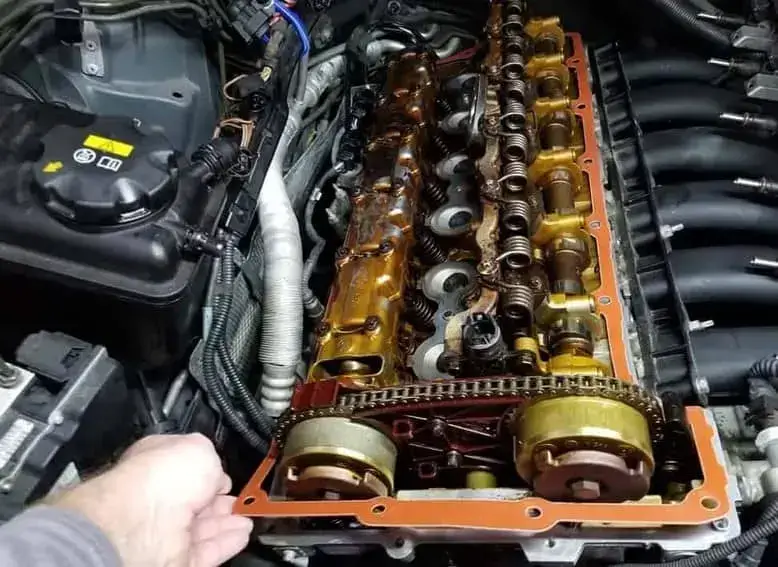
The valve cover gasket leakage is pretty common among many BMW engines.
With constant heat over time, the cover gasket wears out and cracks down resulting in oil leaking into the engine bay. You won’t get a warning sign for this however you may notice a burning oil smell, smoke from the valve cover, oil leakage, low engine oil light, etc.
If you face this issue, quickly get the gasket replaced and prevent any bigger issues.
These are some of the common issues you may face with the N51 engine. You will find these common issues in almost all the engines, and the N51 doesn’t have any severe issues.
What Is A SULEV Engine?
The SULEV or Super Ultra Low Emission Vehicle is an emission standard introduced by the California Air Resources Board (CARB) for the U.S. classification set for passenger vehicle emissions.
The California legislation has suggested manufacturers for a percentage of SULEV vehicles, and BMW then introduced the N51 engine. The N51 was designed to produce a compression ratio of 10.0:1 down from the N52 engine’s 10.7:1.
The SULEV is 90% cleaner with less emission of hydrocarbons, carbon monoxide, nitrous oxides, etc. than the average year vehicle models. When tested under an FTP-75 cycle the N51 produces around 1.0g/mi of CO (carbon monoxide) and 0.02g/mi of NOx (nitrous oxides) compared to the N52 engine’s 2.1g/mi of CO and 0.07g/mi of NOx.
Which was a considerably good level for the environment & the set emission level.
Is The BMW N51 More Expensive To Own?
Well long answer short yes, the N51 is pretty expensive compared to the N52 engine. There are multiple valid reasons for the N51 to be more expensive like multiple upgraded expensive components used to produce less emissions. Using expensive parts is also pretty complicated which adds up to the cost.
Also the after-purchase cost like many parts needed to be replaced as a whole, like if the EAC sensor in the radiator gets damaged you’ll need to replace the whole radiator.
Just like the radiator, there are a lot of other parts that need to be replaced as the whole unit, because of their complexity & usage.
However, the N51 or the SULEV engines got one relief which was a 15-year or 150,00 mile warranty. Which states “If any emission-related part on your vehicle is defective, the part will be repaired or replaced by BMW NA.”
I know some guys who have saved a good amount of money with the extended warranty. It also depends upon your BMW dealership, some dealerships are unaware of the warranty information.
Conclusion
So, now you know everything about the N51 engine & to know more about its sibling visit here: BMW N52 Engine: All You Need To Know.
Both the N51 and N52 are very good engines with their solid reliability commitment. However, if you choose to buy a N51 engine then you need to be aware that maintaining the N51 can be pretty expensive.
So, make the decision wisely. However, if you get a good condition, lower mileage with some warranty time left under the engine, you should go for it. However, the costs will be very expensive after the warranty ends.
Otherwise, if you don’t have much deep pockets you could always rely on the N52 engine. With the same power output and is famous for its reliability the N52 can also be a great choice.
FAQ
The N51 engine is the SULEV version of the N52 engine, with some upgraded components and the same power output. The N51 is also very reliable with a power output of about 240 horsepower.
Yes, the N51 engines are very good, being a very reliable engine with a very low emission level. The N51 is a SULEV engine with a 90 % less emission level.
The N51 SULEV engine produces around 240 horsepower.
Note: The featured image is an N52 engine.
Image Credit: Cars.com
Similar Posts:
BMW N52 Engine: All You Need To Know
BMW N52 Reliability: The Great Natural Aspirated Engine
BMW N52 Oil & Filter Change DIY Guide (Step By Step Process)

